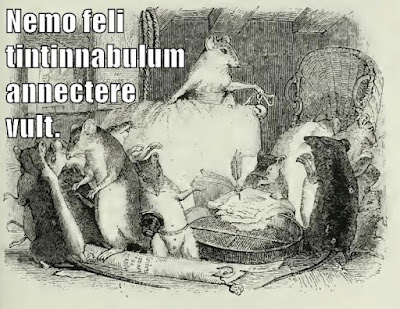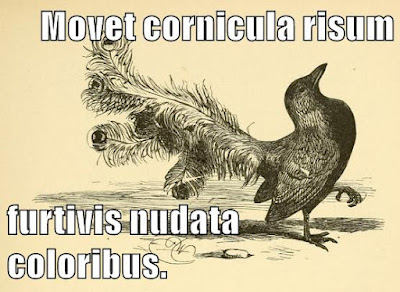Here the verb "vis" takes a direct object; you will see that the verb can take either an object or an infinitive complement, as in the following proverb.
Here "vis" takes a complementary infinitive: "si vis accipere," "if you want to receive."
As a teacher, I endorse this saying 100%. Teaching really is the best way to learn anything.
Here "vis" does not take a noun or verb complement, although in English, you probably would need to supply a complement: si vis, "if you want (to do something), which would also go with the "potes," "you can (do that thing)."
This proverb applies if the previous proverb actually turns out not to be true! The verb "facito" is an imperative.
Compare the English saying "divide and conquer."
This proverb plays very elegantly with the noun "imperium" and the related verb, "imperare."
Si vis amari, ama.
The point of this proverb depends on the contrast between the passive "amari" (passive infinitive) and the active "ama" (imperative).
Si portari vis, porta et alium.
This saying also depends on the contrast between a passive "portari" (passive infinitive) and active "porta" (imperative).
Benefac, si vis ut benefiat tibi.
This features a play on the active "benefac" (imperative) and the passive "benefiat" (subjunctive).
Quod vis videri, esto.
Qualis vis videri, talis esto.
The form "esto" is an imperative form of the verb "esse," to be. (Compare the imperative "facito" in the proverb above.)
Audi, cerne, tace, si vis tu vivere pace.
Audi, vide, tace, si vis vivere in pace.
These are two variations on the same theme, and it's a medieval rhyming proverb: tace-pace.
Ebibe vas totum, si vis cognoscere potum.
This is another rhyming proverb: totum-potum. Compare also this saying: Lege totum, si vis scire totum.
Mortis linque metus, si tu vis vivere laetus.
This rhyming proverb gives you a clue about the pronunciation of the diphthong "ae" in the Middle Ages: metus rhymes with laetus. Many manuscripts also spell the diphthong "e" just as it was pronounced.
Fac bene dum vivis, post mortem vivere si vis.
This is another rhyming proverb, with the final rhyme composed of two words: vivis - si vis.
Si vere tibi vis vivere, vive aliis.
This proverb has some elegant soundplay with the adverb "vere" and the verbs "vis vivere" and "vive."
Quod tibi vis fieri, hoc fac alteri.
Quod tibi non vis, alteri ne facias.
These two sayings are positive (vis) and negative (non vis) reflections of one another.
Si dices quae vis, audies quae non vis.
Cum dixeris quod vis, audies quod non vis.
These sayings express the same idea but with different syntax: a "si" clause in one and a "cum" clause in the other, along with the singular neuter "quod" versus the plural neuter "quae."
Vita malos, ni vis malus quoque fieri.
The adjective "malos" is being used substantively here: "bad (people)."







_by_Thomas_Degeorge.png)







